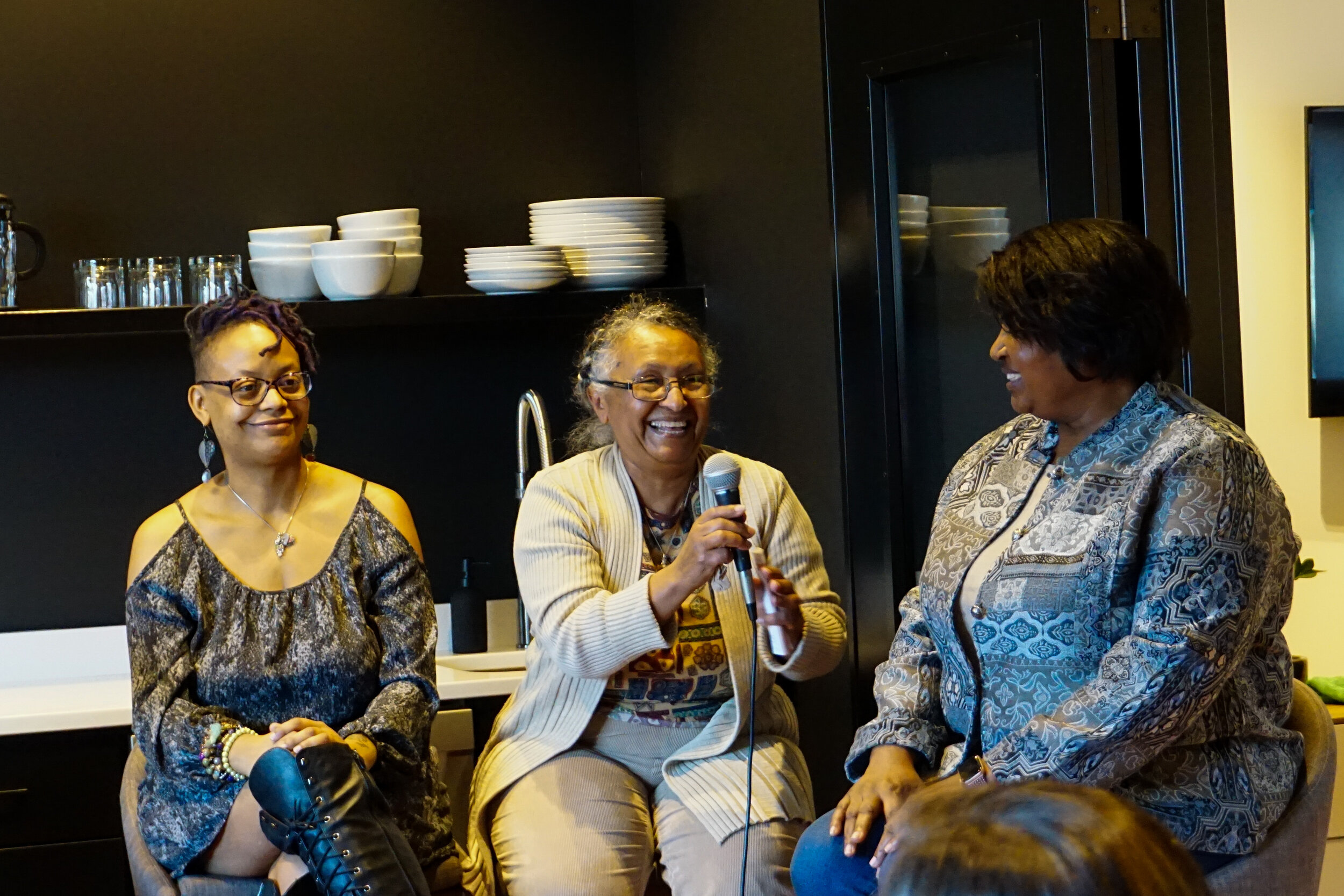DiverseCITY Series
The DiverseCITY Series is…
The DiverseCITY Series is a public series of panel discussions produced by Indy Women in Food. Our mission is to celebrate diversity and give a recipe for unity in the ever-expanding city of Indianapolis. ALL ARE WELCOME to listen and enjoy!
This popular event series is ongoing throughout the year. Each event is a panel discussion that explores racial equity and food through a different lens. Past Diversity Panel events have included:
December 2, 2018: Celebrating Women in Food
June 20, 2019: Celebrating LGBTQ in Food
August 15, 2019 Women, Creativity & Food (with CreativeMornings)
October 6, 2019 Indy Women in Agriculture: Agents of Change (with Purdue Extension & Marion County Soil & Water Conservation)
February 23, 2020 Food Justice: Disrupting the System (with The Patachou Foundation)
Event Summary — Food Justice: Disrupting the System
Our DiverseCITY panel, Food Justice: Disrupting the System, took place February 23, 2020 at The Patachou Foundation HQ. And what an event it was! Four local leading women came to the table, and with the guidance of our moderators, unpacked many systemic injustices. They tackled food insecurity and hunger in Indianapolis, leveraging food as a tool for youth empowerment, re-energizing neighborhoods, and breaking the cycle of poverty.
"The Food Justice DiverseCITY panel event was amazing! This event gave me lots of ideas I’ll carry into the months ahead." -Jasmine
"I just returned from this afternoon's DiverseCITY series event! Wow! Just Wow! Thank you for sharing your knowledge, expertise, and honest insights." -Lisa
It is clear from the discussion that food insecurity in Indianapolis is a large obstacle to overcome. But after hearing from our speakers, there is hope: these leaders are courageously leading the charge for equity in our city.
Aster Bekele, the founder and executive director of the Felege Hiywot Center, believes that empowerment begins by gaining an understanding of what the youth want to be taught. She emphasized that activists need to meet people where they are--it is hard to get people involved when their primary needs have not been met. Nutritious food is a necessary foundation for community engagement and involvement.
Melele Kennedy, the Indianapolis Food Policy and Program Coordinator, works to feed food insecure individuals in Marion County through state and federal management. She pointed out that the same areas that have always been facing food insecurity are still fighting the issue today. Melele redefined a food desert as a food swamp--an area that lacks a grocery store but has plenty of sources of empty calories. They exist in all parts of the city, affecting each and every Hoosier in some way. Food insecurity is not a problem with a one-size-fits-all solution, but she maintains that “however we manage to provide help for a family to eat today, we are doing something good.”
Dr. Deanna Reinoso, the Chief Physician Executive of the Eskenazi Health Center Pecar and director of Crooked Creek Food Pantry focused on the greater need to work towards food justice in our community. She highlighted the staggering fact that there is a 14 year life expectancy gap from the suburbs to the city due to food insecurity. Dr. Reinoso followed that we should focus on the needs of each community, consider the social determinants of health, and work to destigmatize the issue of food insecurity all together.
Ro Townsend is the founder and CEO of GRoE, Inc. She spoke on the power of food. Feeding a child can improve academic performance, self-confidence, and increase community engagement. Ro provided a call to action, asking each attendee to do their own research on food insecurity, as it is not the responsibility of individuals who are food insecure to be the token educator to the public.
Candace Boyd Wylie and Tanorria Askew, our dynamic moderators, brought plenty of insight to the event. Candace (of FoodLoveTog) suggested that we shop local, get involved with small community efforts, and only donate food to a pantry that you yourself would eat. Tanorria (of Tanorria’s Table) reminded us that all of the answers highlighted at the event were centered around privilege. Get comfortable with the idea of being uncomfortable, and do the work to discover the things we don’t want to admit.
The discussion concluded with a call to action. Listed below are some ways that we at Indy Women in Food suggest that you get involved in your community:
Work within your neighborhood to start a community food box.
Listen to the needs of each area to figure out the best plan of action.
Volunteer your time with local organizations that are in need of some extra hands.
The Patachou Foundation, and any of the organizations mentioned above are a great place to go to find your seat at the table.


